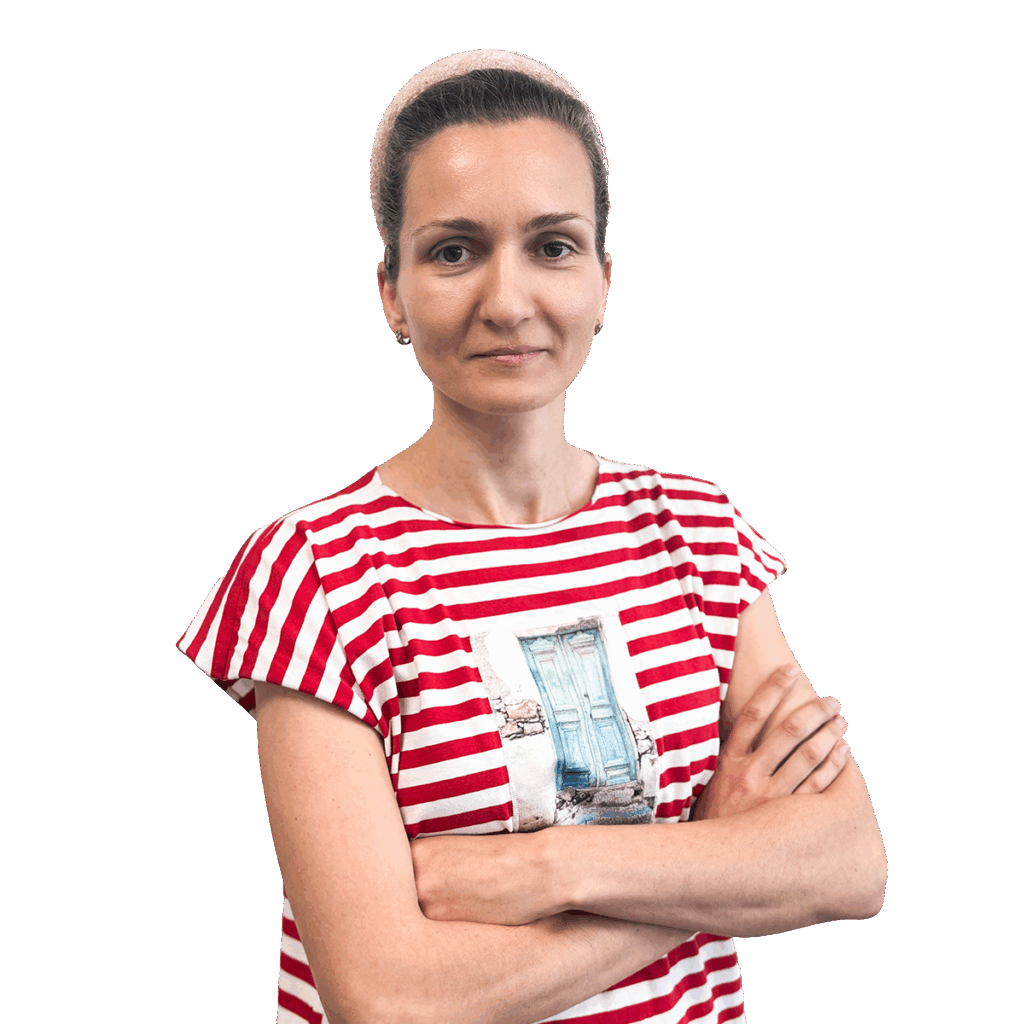 ENG
ENG- Branchen
- Finanzen
Nearshore-Softwareentwicklung für den Finanzsektor – sicher, skalierbar und Compliance-gerechte Lösungen für Banking, Zahlungsverkehr und APIs.
- Einzelhandel
Softwareentwicklung für den Einzelhandel – E-Commerce, Kassensysteme, Logistik und KI-gestützte Personalisierung durch unsere Nearshore-Engineering-Teams.
- Verarbeitende Industrie
Nearshore-Softwareentwicklung für die Industrie – ERP-Systeme, IoT-Plattformen und Automatisierungstools zur Optimierung industrieller Abläufe.
- Finanzen
- Was wir tun
- Services
- Technologien
- Kooperationsmodelle
Kooperationsmodelle passend zu Ihren Bedürfnissen: Komplette Nearshoring Teams, deutschsprachige Experten vor Ort mit Nearshoring-Teams oder gemischte Teams mit unseren Partnern.
- Arbeitsweise
Durch enge Zusammenarbeit mit Ihrem Unternehmen schaffen wir maßgeschneiderte Lösungen, die auf Ihre Anforderungen abgestimmt sind und zu nachhaltigen Ergebnissen führen.
- Über uns
- Wer wir sind
Wir sind ein Full-Service Nearshoring-Anbieter für digitale Softwareprodukte, ein perfekter Partner mit deutschsprachigen Experten vor Ort, Ihre Business-Anforderungen stets im Blick
- Unser Team
Das ProductDock Team ist mit modernen Technologien und Tools vertraut und setzt seit 15 Jahren zusammen mit namhaften Firmen erfolgreiche Projekte um.
- Wozu Nearshoring
Wir kombinieren Nearshore- und Fachwissen vor Ort, um Sie während Ihrer gesamten digitalen Produktreise optimal zu unterstützen. Lassen Sie uns Ihr Business gemeinsam auf das nächste digitale Level anheben.
- Wer wir sind
- Unser Leistungen
- Karriere
- Arbeiten bei ProductDock
Unser Fokus liegt auf der Förderung von Teamarbeit, Kreativität und Empowerment innerhalb unseres Teams von über 120 talentierten Tech-Experten.
- Offene Stellen
Begeistert es dich, an spannenden Projekten mitzuwirken und zu sehen, wie dein Einsatz zu erfolgreichen Ergebnissen führt? Dann bist du bei uns richtig.
- Info Guide für Kandidaten
Wie suchen wir unsere Crew-Mitglieder aus? Wir sehen dich als Teil unserer Crew und erklären gerne unseren Auswahlprozess.
- Arbeiten bei ProductDock
- Newsroom
- News
Folgen Sie unseren neuesten Updates und Veröffentlichungen, damit Sie stets über die aktuellsten Entwicklungen von ProductDock informiert sind.
- Events
Vertiefen Sie Ihr Wissen, indem Sie sich mit Gleichgesinnten vernetzen und an unseren nächsten Veranstaltungen Erfahrungen mit Experten austauschen.
- News
- Blog
- Kontakt

04. Juli 2025 •3 minutes read
Product-market fit evaporates – Agility more important than ever
Marija Gobović
Product Manager
How sure are you that you have product-market fit with your solution? Is it up to date as well? Here’s a reflection on a past project – how we failed and what we can learn from it.
As the Product Manager, I was part of a project aimed at solving a user problem that, by the time we launched the solution to production, was no longer a problem. It was such kind of issue that simply faded over time on its own, people just adjusted to the new circumstances or found new ways of working. The project was run within a large corporation, which naturally had slower decision-making processes and long budget planning intervals – OKRs were set quarterly and yearly. Nobody anticipated that the problem we are solving might resolve itself over time. We ended up investing more than a year of effort, not just from an entire product team, but from additional resources as well, before launching to end users and checking whether anyone would use the product. Bad practice, I know, not agile. Corporate politics were just too overwhelming, and the end users belonged to a particularly sensitive group, so that’s how it went.
The reason, or an excuse, depending on how you look at it, was that end users were really hard to reach for interviews at that time. Having really few or no users to test our hypotheses with, but had the team capacity to work on previously planned goals, so we just kept going. We were all fully aware of the risk of not launching sooner since at that point we were already an experienced agile team and we knew that things might not turn out well. We pushed through the project hoping for the best, but unfortunately, we ended with a very low percentage of users using our product, so sadly it was sunset shortly after launch.
Anyway, especially today with AI increasingly taking center stage, it seems more important than ever to truly be agile. We must understand that complex world (Cynefin Framework) we often operate in, needs emergent practices, needs very short probe-sense-respond intervals of checking the audience. Staying connected to the market and ensuring ongoing product-market fit is essential for software product development.
I will now walk through suggestions of practices that we clearly should have implemented better, as well as the ones we try to follow whenever circumstances allow.
First of all, enabling a continuous discovery practice is key. Conducting regular interviews with current and potential users to understand their needs, frustrations, and evolving expectations is critical. The point of improvement for us here definitely is that we should have used open-ended questions and focused on problems, not features.
The next step is regular validation with real users, i.e. prototyping and testing early and often. The point of improvement for us: We should have conducted usability testing with the beta version, and offered early access to gather feedback in order to continuously validate assumptions as the market, competition, and technology evolve.
A crucial point of improvement for us, and a precondition for all other practices, is in iterative development, as it should be in all Lean and Agile teams who iterate quickly based on feedback, deliver value in small increments, and test hypotheses with each release.
Once you launch, and hopefully really soon, not like in our example, here are further practices that you as a product team can do to make sure you stay aligned with the market:
- Track the right metrics. Use quantitative data (e.g., retention, churn, NPS, feature usage) to monitor product-market alignment. Track leading indicators of value: activation rate, engagement, and core feature adoption. Of course, beware of vanity metrics — focus on actionable ones.
- Build strong feedback loops. Incorporate mechanisms like: in-app surveys, feedback buttons, and support conversations. Make sure feedback is centralized and visible to the team.
- Enable alignment between Product, Sales, Marketing, and Support. Create cross-functional communication loops to share market insights, objections, and wins. Hold regular meetings with all main stakeholders to sync on what’s working and what customers are saying.
- Experiment. Run A/B tests or feature flag experiments to learn what users value most. Measure results rigorously and be ready to pivot or kill features that don’t deliver value.
- Be aware of competition and market. Continuously monitor competitors, emerging tools, and industry trends. Engage with industry events, communities, and newsletters to keep a pulse on what’s changing.
- Run product-market fit surveys. Use tools like Sean Ellis Test (“How would you feel if you could no longer use this product?”). Identify what segment gets the most value and make sure to serve them even better.
In the end, real life is not ideal, my approach is to play with what you have, do your best and hope for the best.
What do you think? What else could have been done?
Tags:Skip tags

Marija Gobović
Product ManagerMarija Gobović is a product manager who loves turning ideas into real, user-loved products. From product discovery to launch, she is your go-to for keeping things moving and making sense of the chaos. With roots in software engineering and Agile coaching, she knows how to maximize team performance. Whether it’s setting a product vision or just getting things done, she’s all about making smart decisions, excellent communication, and building things that matter.


